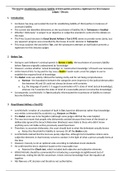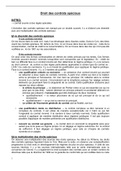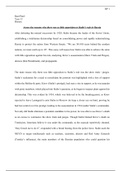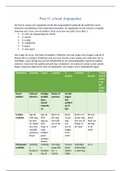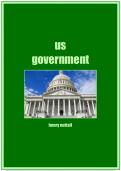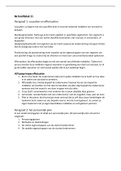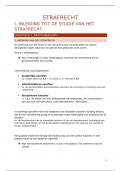Essay
Accessory Liability Essay plan
- Vak
- Instelling
- Boek
A concise, accurate and detailed essay plan describing the standard for liability of third party accessories to breaches of trust. Analysed and criticised using established and heavy-weight academics to support the argument. Achieved a first class in the final exam.
[Meer zien]
